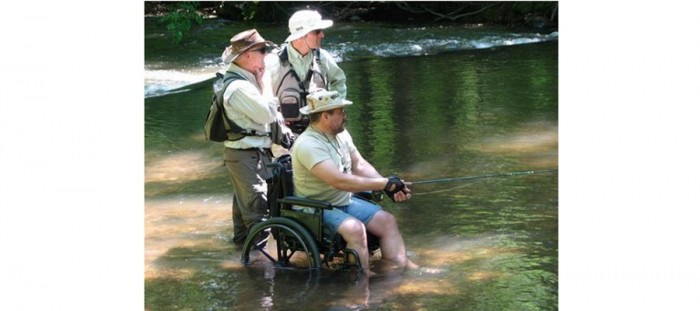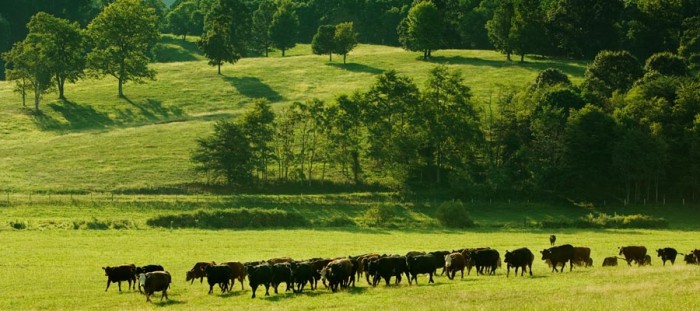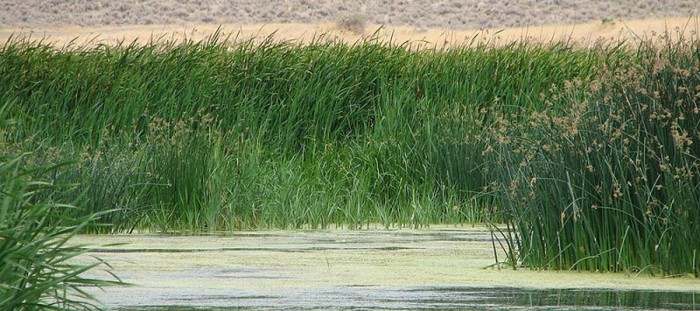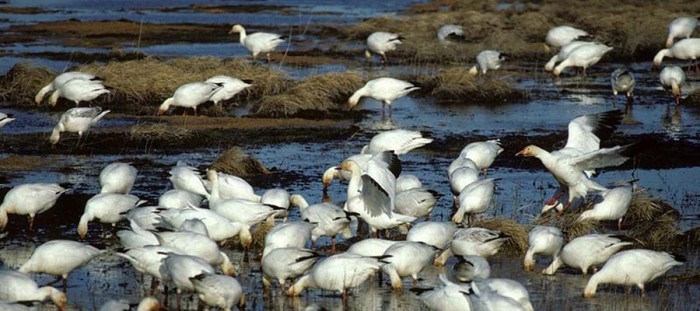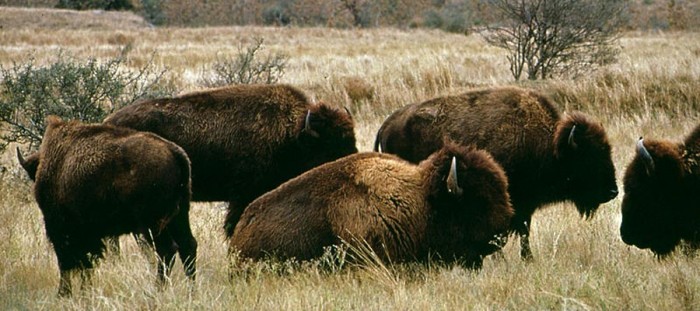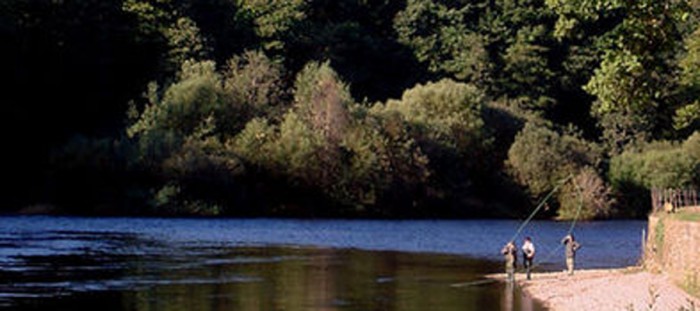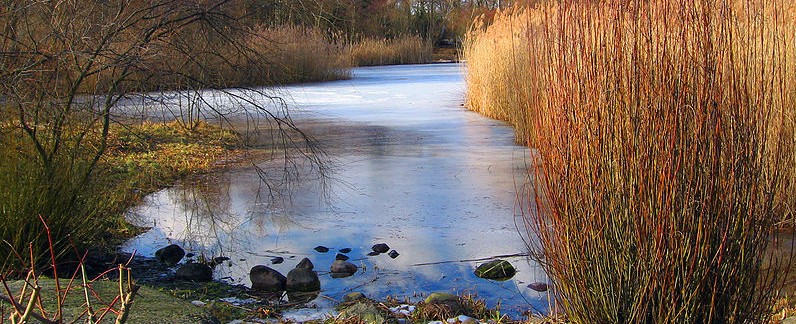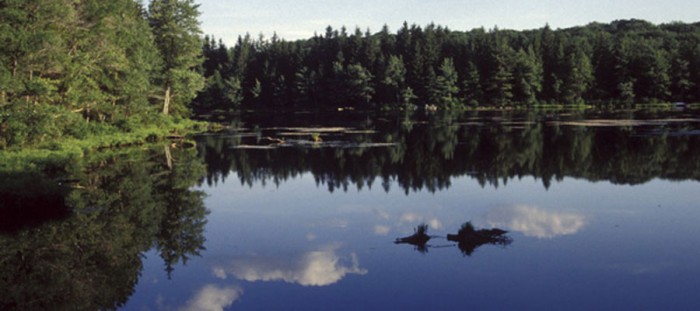In one of our earliest posts, we talked a bit about a great program called Project Healing Waters. It’s a program that works with wounded and disabled veterans to teach them the basics of fly fishing, fly casting, and rod building.
We recently received an email from them asking for support to help them raise money and gain greater media exposure. We’ve published it below and ask that you consider helping them out. It does not require any money, just your votes.
In recognition of the work Project Healing Waters Fly Fishing (PHWFF) does with veterans and its presence on GuideStar, PHWFF has been selected to participate in a weekly voting competition on Toyota USA’s Facebook page http://www.facebook.com/toyota?sk=app_114219605347571. PHWFF will be up against three other nonprofit organizations and the one with the most votes at the end of the week will receive $10,000.00 plus be featured on NBC’s Sunday Night Football during the Toyota Halftime advertisement.
We need your vote. We need your vote every day from November 2 through November 8. In addition, please encourage your family, friends, co-workers, employees, bosses, colleagues, clients, neighbors, civic, social, patriotic, military and veterans organizations, Social media friends, PLs, volunteers, and anyone else you can think of to vote for PHWFF…not just once, but remember to vote seven times.
I recognize that your time is valuable, however, $10,000.00 and the media exposure PHWFF will get will help purchase fly fishing equipment and supplies and send more deserving veterans on trips is a significant return for a couple minutes of your time each day to log on to http://www.facebook.com/toyota?sk=app_114219605347571 and vote. And, it will be $10,000 less than the nonprofit organization will have to raise to help wounded warriors and diabled veterans as they participate in a constructive rehabilitation and recreational activity.
I thank you in advance for your support.
Photo courtesy of Marcus Schneck, The Patriot-News
A few weeks back, we posted a story about how agriculture-based communities are the new golf communities. It looks like we’ve influenced a developer in Illinois to do the same! (on second thought, he’s probably been working on the project for more than the past few weeks) You see, John DeWald & Associates recently broke ground on their newest development, Serosun Farms. This one is not like traditional subdivisions, though. As DeWald puts it, “The vision of Serosun Farms is to protect and preserve our land from future development and suburban sprawl.” Serosun will blend agricultural preservation and sustainable practices (including producing 70-80% of their own energy on site).
Not only will the community have large plot sizes to preserve open space, it will be centered around a 160-acre working, sustainable farm with an on-site farmer’s market and over 400 acres of open space, miles of hiking trails, fishing ponds, playgrounds, a community center, and an equestrian facility. In fact, the community will have extensive boarding and training facilities and will offer professional care to the residents’ horses.
Perhaps most exciting of all, this innovative community isn’t alone! According to the Urban Land Institute, there are more than 200 similar projects currently in the works.
The affiliates at Field Sport Concepts have extensive experience with every stage of the development of agriculture-based communities. In fact, our work at Bundoran Farm was the first working farm to be certified Gold by Audubon International. We are eager to work with you to develop the next conservation community!
When veterans return home, they often struggle to re-acclimate to civilian life. In addition to having a hard time finding employment, many suffer from debilitating psychological issues. However, organizations like the Veterans Conservation Corps are working to make the process a bit easier.
Working to restore streams, watersheds, forests, and prairies, among other conservation projects, veterans in Washington State are given the opportunity to connect with others struggling with similar issues through volunteer opportunities. The program also provides veterans with job training for outdoor jobs in forestry, wildlife management, and other natural-resource fields. The hope is that by working outside, the veterans will benefit from the healing powers of nature.
Benefiting from an AmeriCorps grant, the Conservation Corps has also developed a robust network of members stationed at many colleges around the state. This has enabled the program to help veterans realize their higher education goals through working with college officials, navigating the GI Bill, and identifying other sources of funding for tuition. The program also serves enrolled veterans as they transition from military life to college life.
To learn more about the program, check out this article from The Seattle Times.
With the release of Apple’s new iPhone today, users will now be able to ask it whether they need a jacket before they leave the house. But we think there should be an app enabling us to easily view hunting forecasts across the county. Luckily, those sites do exist!
Covering a range of species, these sites collect data on habitat conditions, climate, the availability of food sources, and the effects of disease, as well as regulations and trophy potential, among many other factors. They then analyze and interpret the data to provide forecasts on population size and structure in order to help hunters identify the areas with the greatest potential for the upcoming seasons.
Some of the forecasts we particularly like include:
– Outdoor Life National Deer Hunting Forecast
– Pheasants Forever Pheasant Hunting Forecast
– Quail Forever National Quail Hunting Forecast
– Ducks Unlimited Waterfowl Forecast
Happy hunting!
We’ve all heard of the Green Revolution, right? You know, that wildly successful effort to increase agricultural production to meet the demands of a growing world population?
But how about the Brown Revolution? Like its green counterpart, the Brown Revolution aims to increase agricultural productivity, but this time as a means of battling climate change. Unlike the previous version, however, this approach does not hinge on implementing new technology. Rather, it relies on restoring natural systems.
In South Dakota, a team of revolutionaries is looking to lead the charge by implementing a system of holistic management. Such a system seeks to mimic the natural herding of wild animals using livestock. Holistic management has been incredibly effective at promoting greater biodiversity, increased organic matter in the soil, rejuvenation of microorganisms, and the restoration of water cycles. If successful, the trio hopes to restore entire regions!
We would love to hear your ideas on holistic managements and the various ways this could serve as an opportunity for wildlife enthusiasts!
Also, check out this news clip celebrating Charlottesville, VA’s new certified LEED Platinum Smith Aquatic and Recreation Center. FSC affiliate, McKee Carson, is proud to have been responsible for the overall site planning, landscape architecture, civil engineering and site plan approvals for this exciting project!
It’s hard to beat the excitement of feeling your line go taut as you stand there in your waders. Well, one thing could make it better: knowing that fish you’re playing is wild. Don’t get us wrong, we appreciate stocked fish as much as the next guy. But there’s something special about knowing the water we’re fishing is clean enough that it can support natural robust biodiversity.
In this informative, and engaging, post, the author writes of the joys of fishing recovering streams in Vermont. With the help of conservation groups and concerned farmers, volunteer crews have been planting a series of shade trees and are working to shore up eroding banks. Where the streams in his area were once populated by old tires, plastic bags, bottles, and other garbage, they are now characterized by growing trout populations, more prolific streamside vegetation, and bigger hatches.
Every day, we are hearing about successful water quality improvement projects around the country. We would love to hear your stories!
For those of you who enjoy fishing, boating, hunting, hiking, and watching wildlife, this post may be of importance to you. Actually, if you value safe drinking water and are opposed to widespread flooding, you should probably keep reading.
You see, yesterday the U.S. EPA announced the Healthy Watersheds Initiative: A National Framework and Action Plan. This action plan is especially important because it was formulated with the understanding that our waters and aquatic ecosystems are dynamic and that they must be protected as whole, interconnected systems rather than as separate parts.
Traditionally, water improvement efforts are undertaken piecemeal and therefore fail to address many of the underlying factors. More specifically, much of EPA’s current water quality protection program has been aimed at remediating individual water bodies and in many cases, specific pollutants. The Healthy Water’s Initiative, on the other hand, expands the focus to protecting and maintaining high-quality waters, which is significantly more cost-effective than having to restore those waters.
Field Sport Concepts’ affiliate, Trout Headwaters, has long provided clients with knowledgeable solutions for both protecting and remediating threatened aquatic habitats. Check out our website to learn more!
There are a lot of golf courses in the U.S.! Florida has over 1,200 courses; Californians have over 1,000 to choose from; and Michigan, Texas, and New York each boast around 900 courses. As a result of the struggling economy, however, many of these courses are going out of business. Indeed, in 2008, only 72 new courses opened while 106 closed.
But, as they say, when one door closes another opens. As golf courses continue to close down across the country, communities are finding opportunities to repurpose them as public parks, archery clubs, community farms and gardens, public lakes, concert venues, composting facilities, wildlife sanctuaries, re-engineered wetlands, and field sport venues. And this is only a sample of all the ways golf courses can be re-used!
To learn more about golf course repurposing, check out this NPR story, “Finding New Uses for Troubled Golf Courses.” We would love to hear about how the courses in your community are being re-imagined.
With our multi-disciplinary team of affiliates, Field Sport Concepts has the range of expertise to help you convert that golf course into a more ecologically friendly, revenue-generating amenity.
Land conservation requires creativity. Stakeholders must come up with goals for the land, they must develop strategies for accomplishing their objectives, and perhaps most importantly, they must identify and secure funding for putting these strategies into play. Indeed, as one wise man once said, “Show me the money!”
All across the country, public agencies are working hard to show landowners the money. Today, for example, the Virginia Land Conservation Foundation awarded 17 grants totaling $2.4 million to preserve 2,234 acres across the Commonwealth. In Georgia, the Georgia Land Conservation Program aims to boost land conservation by offering state income tax credits in exchange for conservation land donations. And in Pennsylvania, the Land Trust Excellence Grants Program is still taking applications for grants to help fund conservation efforts. If you’re in that region, you still have time to apply!
The benefits of locally-grown produce cannot be overstated; the fruits and veggies are fresher and more nutritious, farmers get to keep a higher proportion of the profits, local food systems foster a greater connection between consumers and food producers, and, of course, it can be more environmentally friendly as the food does not have to travel as far from farm to fork.
Though local and regional food systems have been gaining in popularity across the US, members of the House Appropriations Committee are calling for the slashing of federal support for programs geared toward promoting these systems. Initiatives like “Know Your Farmer, Know Your Food” have been effective at strengthening rural communities, promoting healthy eating, protecting natural resources, and building local and regional food systems. As residential developments centered around agriculture continue to replace traditional subdivisions, residents will have even greater access to locally grown food.
The affiliates at Field Sport Concept have a long history of designing beautiful and productive landscapes. Please do not hesitate to contact us to explore ways to realize your vision for your own land.

